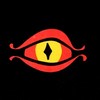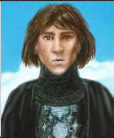| pv |
|
atalante_starScholar of Imladris and Theodens LadyPosts: 1365 Send Message |
|
| LadyBeruthiel |
|
FigwitBook Club Moderator & Misty Mountain MonsterPosts: 1966 Send Message |
|
| pv |
|
FigwitBook Club Moderator & Misty Mountain MonsterPosts: 1966 Send Message |
|
| elvishmusician |
|
| LadyBeruthiel |
|
FigwitBook Club Moderator & Misty Mountain MonsterPosts: 1966 Send Message |
|
atalante_starScholar of Imladris and Theodens LadyPosts: 1365 Send Message |
|
atalante_starScholar of Imladris and Theodens LadyPosts: 1365 Send Message |
|
FigwitBook Club Moderator & Misty Mountain MonsterPosts: 1966 Send Message |
|
atalante_starScholar of Imladris and Theodens LadyPosts: 1365 Send Message |
|
| Fattybolger |
|
| pv |
|
atalante_starScholar of Imladris and Theodens LadyPosts: 1365 Send Message |
|
| newsgirl |
|
| Fattybolger |
|
| pv |
|
| cirdaneth |
|
| Hercynian |
|
tarcolanMovies Moderator and General DogsbodyPosts: 6046 Send Message |
|
 Author
Author








 Tolkien's true religion...
Tolkien's true religion... ) and let more knowledgeable folks follow this direction.
) and let more knowledgeable folks follow this direction.

